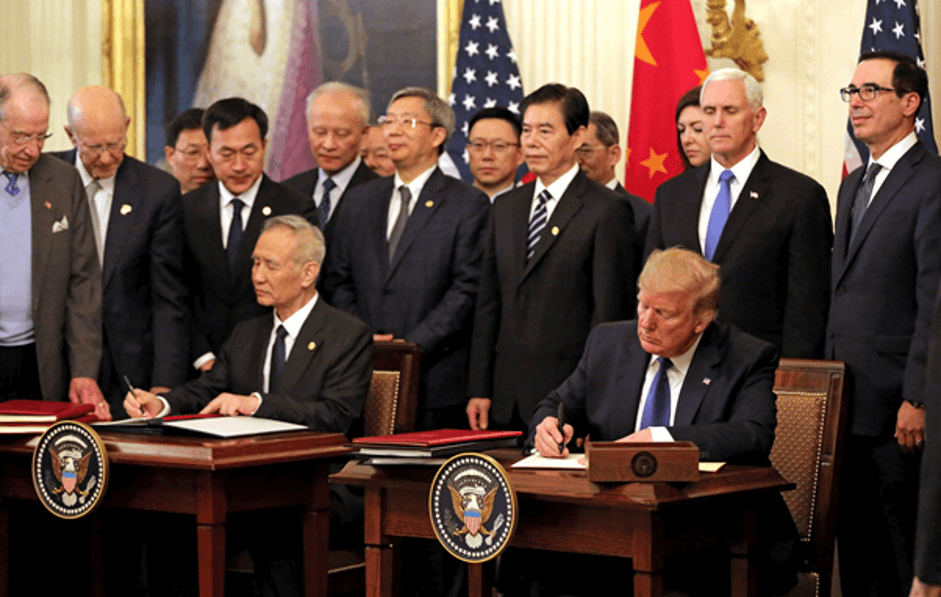
Trade Deal Win For U.S Economy Or Republican’s Elections
Between January and November 2019, China pushed down its trade surplus with the U.S to 16.2%. A big win for the Trump administration that world economy experts believe may have informed the signing of the long-awaited China-U.S trade deal last week. Interestingly though, in a major shift from previous negotiations, the U.S team is ignoring the rate at which China is untangling its economy. It is moving from overreliance on the U.S trades and dollar-backed international transactions. Between January and November, for instance, China slashed its U.S purchases by over 12%. The second-largest economy also accelerated its abandonment of U.S markets. It cut down on exports to the U.S for 2019 by 15.2%.
In light of these, economy news analysts read insincerity on the part of the Trump administration. That was in the past been critical of any protective measures taken by China. Some argue that the administration could have rushed the process in a bid to score higher ratings as the elections draw closer. Others believe that Beijing signed the deal to ease political and economic tensions. Beijing explores and tries new markets in the hopes that Trump will lose the elections. And America furnishes them with a more ‘rational’ president to deal with.
One such world economy expert and managing director at IMA Asia – Richard Martin – does not believe the deal will hold. In reference to one of the terms of the deal that requires China to increase its exports by an additional $200 billion in the next two years. Martin argues that “government-mandated trade” simply doesn’t work. “We don’t like governments to go out and say this is the volume of trade and this is the price point we want done at — that’s meant to be said at the markets” he argued.
China Economy Remains Unstirred
Martin further casts doubt in the deal’s adjudication process. That allows the U.S. trade representative to “determine whether China is breaking the rules and inflict any penalty he wants.” Such a poor adjudication process allows either party to walk away from the deal threatens its sustainability. The economist was especially confident in his argument of a 50% chance the trade deal could survive the first year. And there is a 75% chance either the U.S. or China will walk away in the second.
In 2019, China continued with its push to move away from overreliance on U.S trade and dollar-backed transactions. Despite the declining U.S. trade imports and exports that informed the reduced trade surplus, the Chinese economy grew by over 5% in 2019. A calculated economic move aimed at shielding the Chinese economy from a U.S-related market shock. Beijing has diverted its attention to the Belt and Road initiative corridor.
Economy news experts contend that while China’s journey towards shaking off trade imbalance may be long. It plays into the Asian economic giant’s long-term economic and political ambitions. Economic independence from the U.S, for instance, would embolden Beijing’s age-old claims over Taiwan and the Korean Peninsula. More importantly, it would give China confidence. And also a say on global politics even as it continues with what seems like a permanent collision with Washington.




